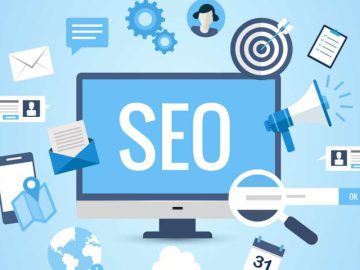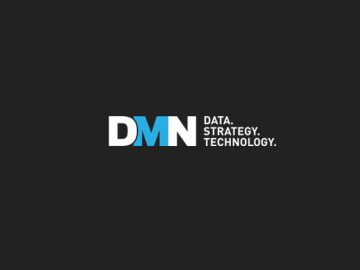AI can strike fear into the hearts of many, with people envisaging their jobs and businesses being left by the wayside as technology takes care of it all. This anxiety isn’t unfounded, as history has shown examples of industries faltering when they fail to adapt to technological shifts. Toys “R” Us serves as a cautionary tale—their slow adoption of e-commerce left them vulnerable to online retailers, which leveraged digital platforms to revolutionize toy shopping.
This does not have to be the case, as David Hunter, entrepreneur and digital marketing expert, confirms, “AI can be working with you, not against you, as long as you are using it optimally. It is actually a fantastic growth tool.”
Local Falcon provides innovative tools. At first, the B2B SaaS was using a geo-grid map format to provide users with actionable insights about their performance in the local area. Hunter was the first to see the potential of the AI revolution in terms of its relationship with local SEO.
“I had this lightbulb moment of realizing we could take all of our local SEO knowledge and pair it with AI so AI can analyze that geographic area and give tips on business growth that are entirely specific,” he says. “It’s called Falcon AI, and we followed up with an AI Copilot called Falcon Assist, which uses the same data set to help people understand what they need to do for the best results.”
Continuing to develop cutting-edge technology, Local Falcon has recently launched an AI review analysis tool that goes beyond ranking insights. This service ingests Google reviews for any business and its competitors to deliver comprehensive insights and recommendations. The attention to detail is impressive; for example, a recent case study involving an optometry practice highlights the power of these AI-driven insights in improving patient care and business reputation. The Reviews Analysis uncovered a critical gap in their patient education process.
Despite providing take-home pamphlets with post-procedure care instructions, many patients reported feeling underprepared. This valuable insight prompted the practice to reevaluate its communication strategy. In response, they implemented a simple yet effective text messaging campaign to deliver the same post-procedure care information directly to patients’ phones. This digital approach ensured that crucial information was easily accessible and timely. The result was remarkable: patients felt better informed and supported, leading to a significant improvement in review scores. This case demonstrates how leveraging AI and digital communication can transform the patient experience and boost a healthcare provider’s reputation and, in turn, their local ranking.
The importance of local strategy in SEO can make all the difference in the success of a business. Hunter explains that achieving visibility via SEO is no longer as simple as entering a few keywords and getting backlinks. Because AI is picking up conversational language across the internet, it is now crucial for businesses to incorporate AI-readable local data into their online presence to stay ahead of the competition.
“I tell our customers to prepare for the future,” says Hunter. “There is a new reality with SEO, which is that AI optimization is dramatically changing the landscape. Social proof has always been relevant, but with Google and Open AI’s new partnerships with Reddit, it is becoming more important than ever. If a customer is talking about a product or service on Reddit or Quora, it will now be indexed almost immediately. Businesses need to have contextually aware expertise, and that authority is supported by those types of social mentions in natural language.”
Reflecting on the common mistakes that many businesses make in this sphere, Hunter shares three top tips for making the most of SEO:
- Complete your Google Business Profile
“It sounds obvious,” says Hunter, “but you would be amazed how many companies don’t complete their Google Business Profile. It is a really simple but crucial step in the chain that allows the technology to work harder for you.”
Hunter advises his customers to consider the Google Business Profile almost as a replacement for their company website, so all salient information needs to be included. “It’s the first move in your business’ journey to achieving incredible local SEO results,” he says.
- Choose the right category
“Google has over 4,000 categories to choose from when you set up your listing. You can include up to ten categories, but if you don’t select the right ones, your visibility will be dramatically limited. Not researching which categories are going to make the most sense for your business is often the biggest downfall. For example, a workplace injury attorney might only select ‘workers’ compensation attorney’ even though they would be happy to take cases in other categories such as ‘personal injury attorney.’”
“Not getting enough reviews or not responding to reviews is a common issue,” says Hunter. “Google is invested in getting you to engage here. Their old business model was to present results only, but now they want to keep you on their pages so they can serve more ads and content and have more control over your user experience. This means your listing will likely rank poorly if you are not spending enough time engaging with reviews or interacting with customers via the Google Business profile.”
With the momentum of being the first SaaS to combine AI optimization with local SEO data, Local Falcon is poised to help businesses, agencies, and enterprise brands worldwide achieve remarkable growth.





